PsychNewsDaily Publishers
100 Summit Drive
Burlington, MA, 01803
Telephone: (320) 349-2484
PsychNewsDaily Publishers
100 Summit Drive
Burlington, MA, 01803
Telephone: (320) 349-2484
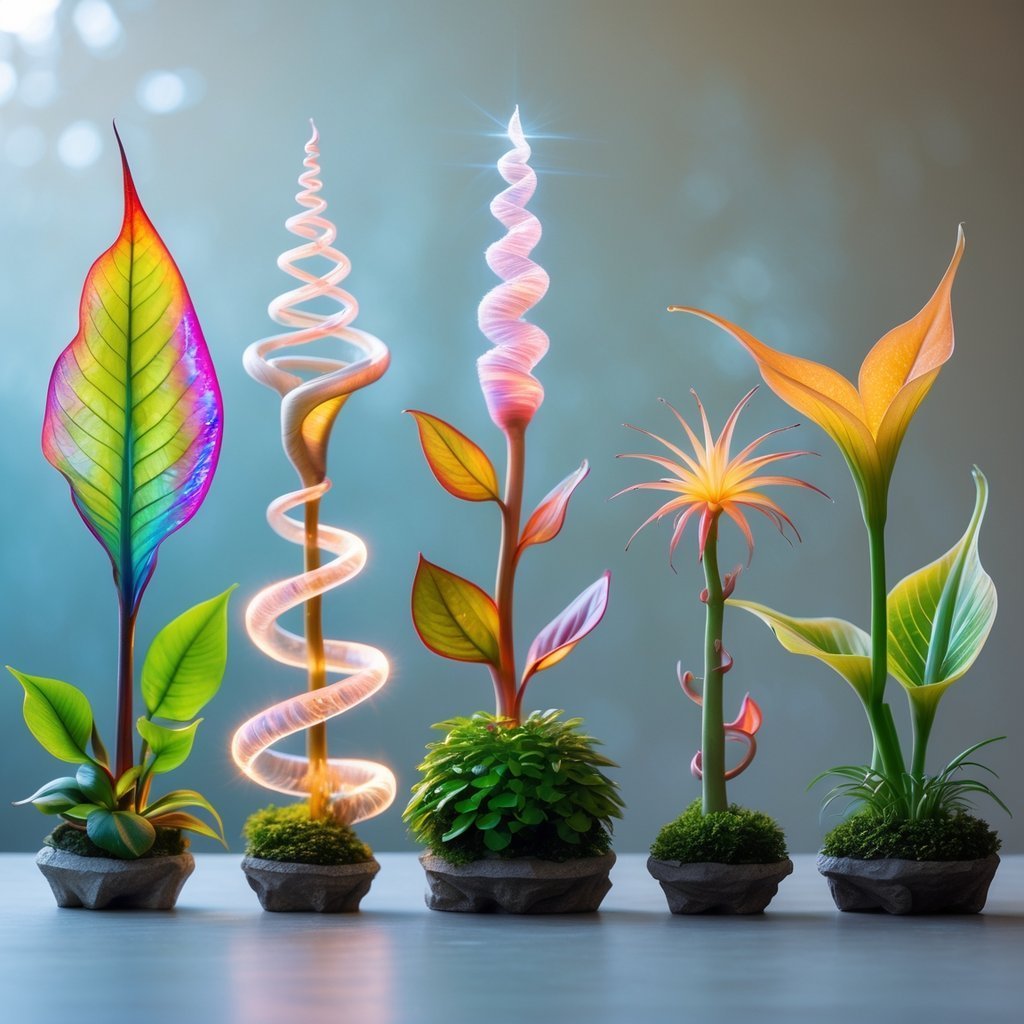
Plants have a way of surprising you with shapes and colors that seem like they belong in a storybook. Some rare varieties look so wild, you might wonder if they’re even from this planet. Nature’s creativity honestly knows no bounds.
These rare plants stand out thanks to their strange, beautiful forms—almost magical, really. If you take a closer look, you’ll see just how much variety nature hides in plain sight.
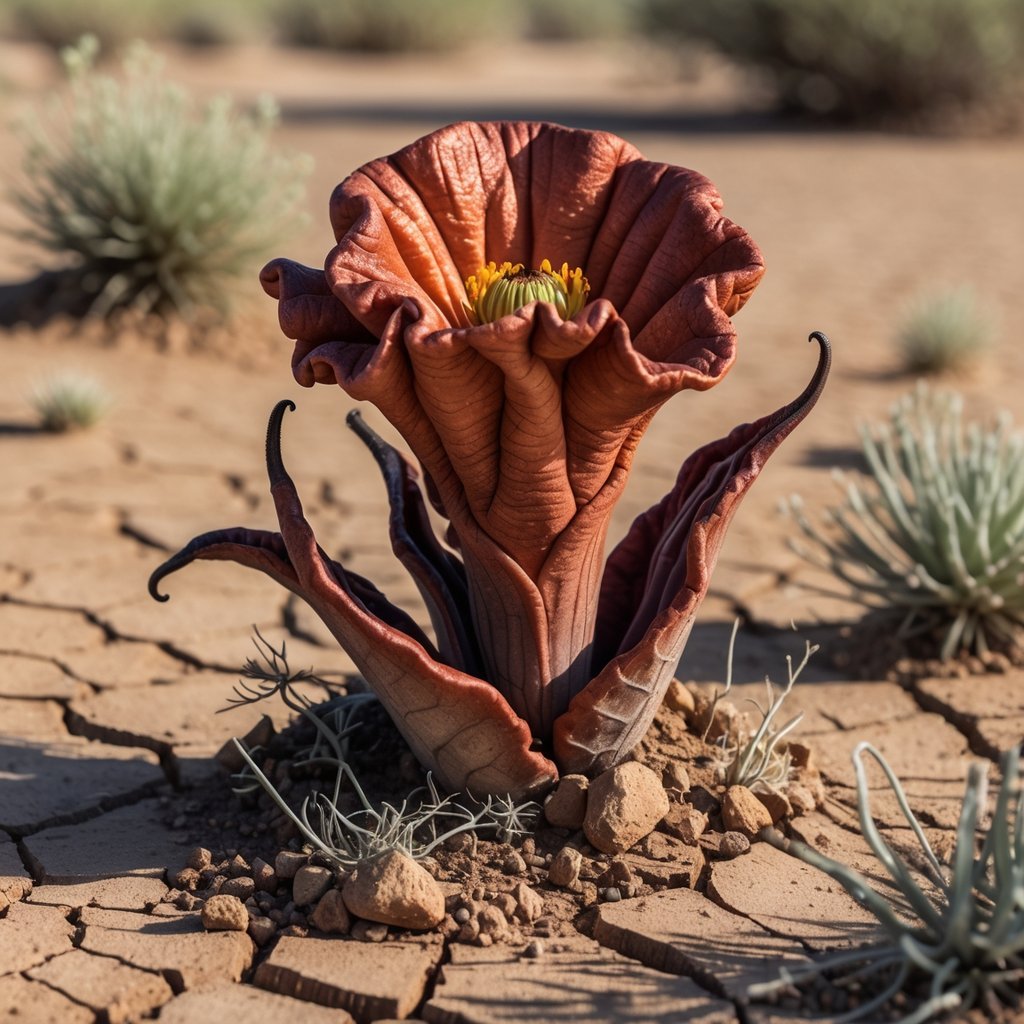
Hydnora africana doesn’t look like most plants at all. It hides underground and skips the usual leaves or green color. Instead, you get this odd, brownish body that honestly resembles a fungus.
When rain finally arrives, the flower pushes up through the soil. The bloom stands about 10 to 15 cm tall, round and kind of startling.
Inside, it flashes a bright salmon-orange shade that’s pretty unforgettable.
This plant acts as a parasite, using special suckers to steal nutrients from the roots of other plants—mostly from the Euphorbia family. The look is so unique, you might swear it belongs in a sci-fi movie.
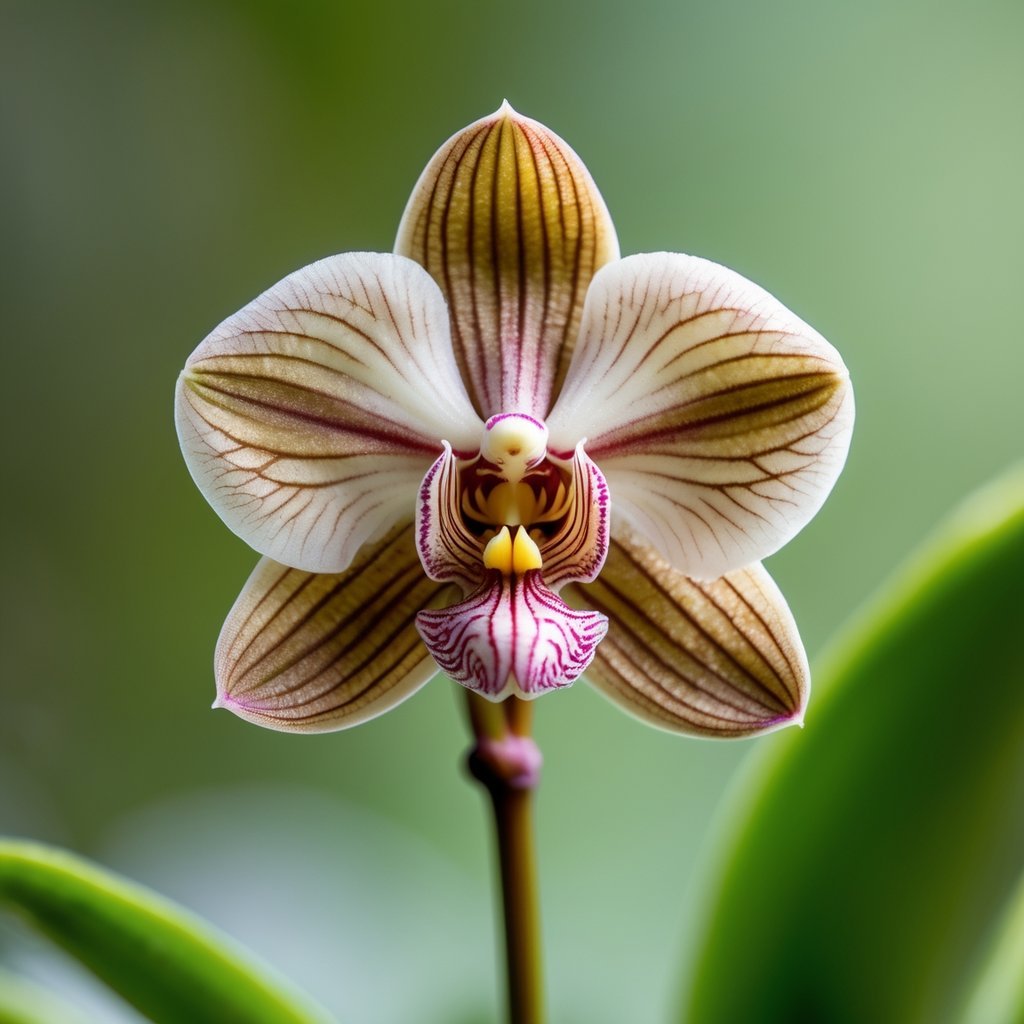
The Monkey Orchid will amaze you the first time you see it. Its flowers really do look like a tiny monkey’s face, with eyes, a nose, and a mouth you can spot right away.
You’ll mostly find this rare orchid in the cloud forests of Ecuador and Peru. If you want to grow one, you’ll need to create a cool, humid spot with good airflow. It likes daily watering but doesn’t need too much fertilizer.
Surprisingly, the flowers give off a sweet scent, almost like ripe oranges. The plant blooms across many seasons, showing off several flowers one after the other. Watching each new bloom open is a treat for any plant lover.
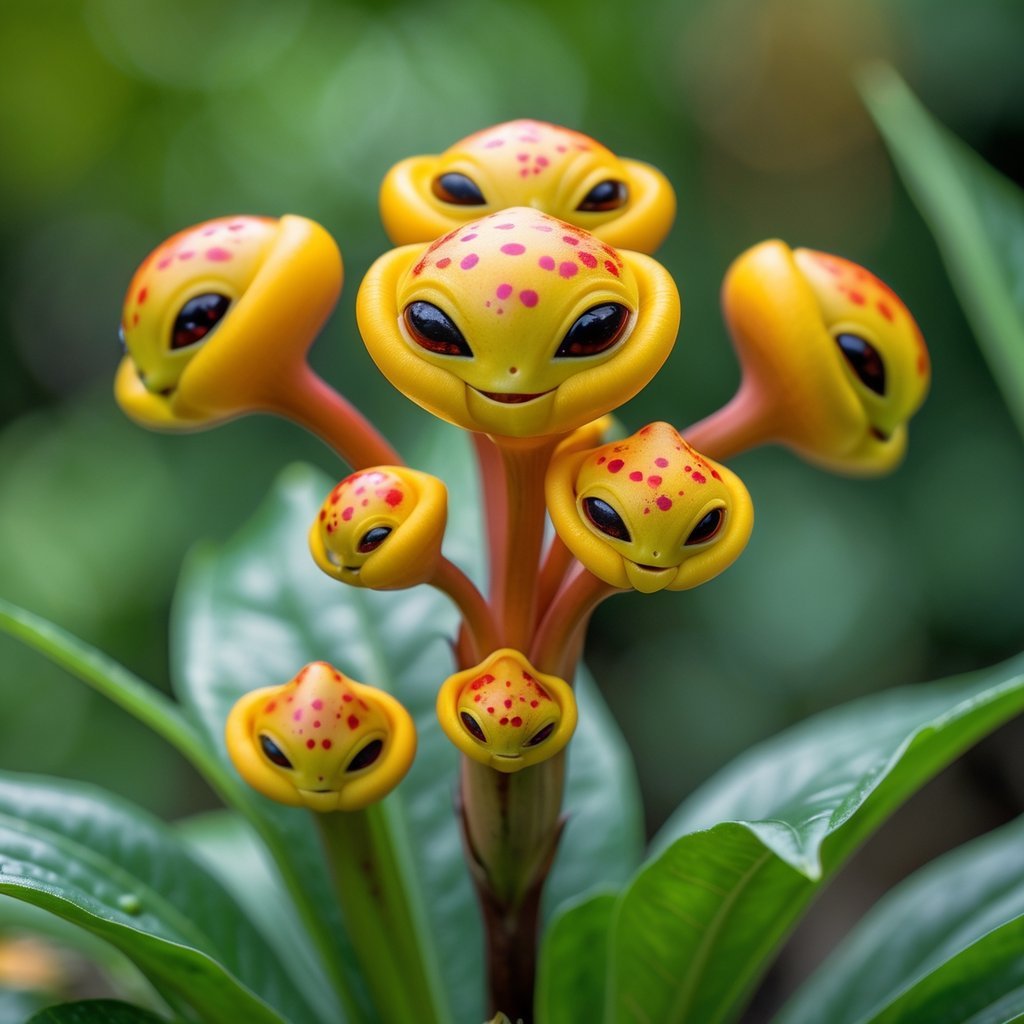
You’ll spot Calceolaria uniflora, or the Happy Alien, growing wild in the chilly parts of southern South America. Its flowers look like tiny slippers—bright yellow with red and white markings.
The plant stays small, usually under 4 inches tall, and keeps its green leaves all year. Its shape and color really pop in any garden or on a windowsill.
If you’re into plants that feel cheerful and a bit weird, the Happy Alien is a fun pick. Those unusual blooms seem like they came straight from another planet.
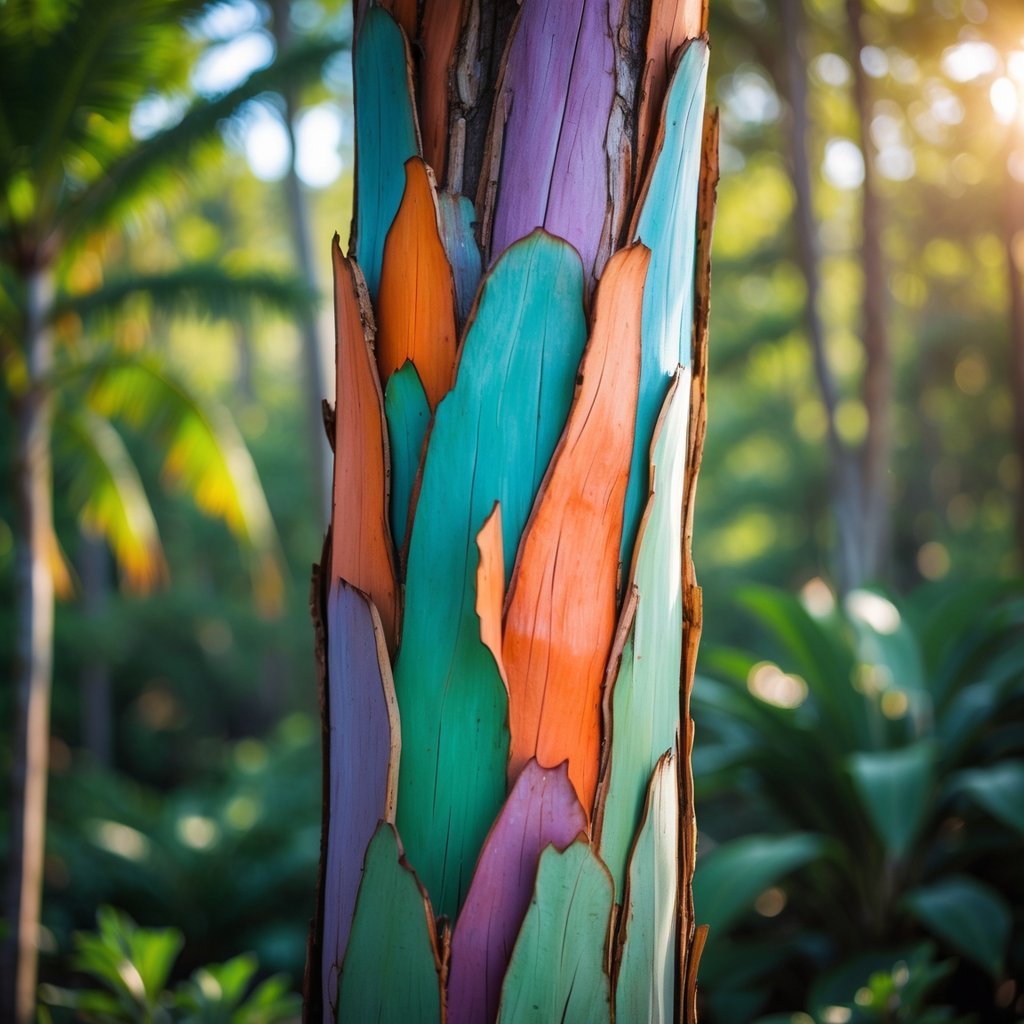
Rainbow Eucalyptus might just be the coolest tree out there. Its bark peels off in strips, and underneath you’ll see wild colors—green, blue, orange, red, even purple.
As the bark sheds, the colors shift and fade, making the trunk look like a living rainbow. This tree grows fast and loves warm, humid climates.
You’ll find it in the Philippines, Indonesia, and Papua New Guinea. It’s pretty rare to spot, but when you do, it’s unforgettable. If you’re after a tree that feels straight out of a fantasy, this one’s hard to beat.
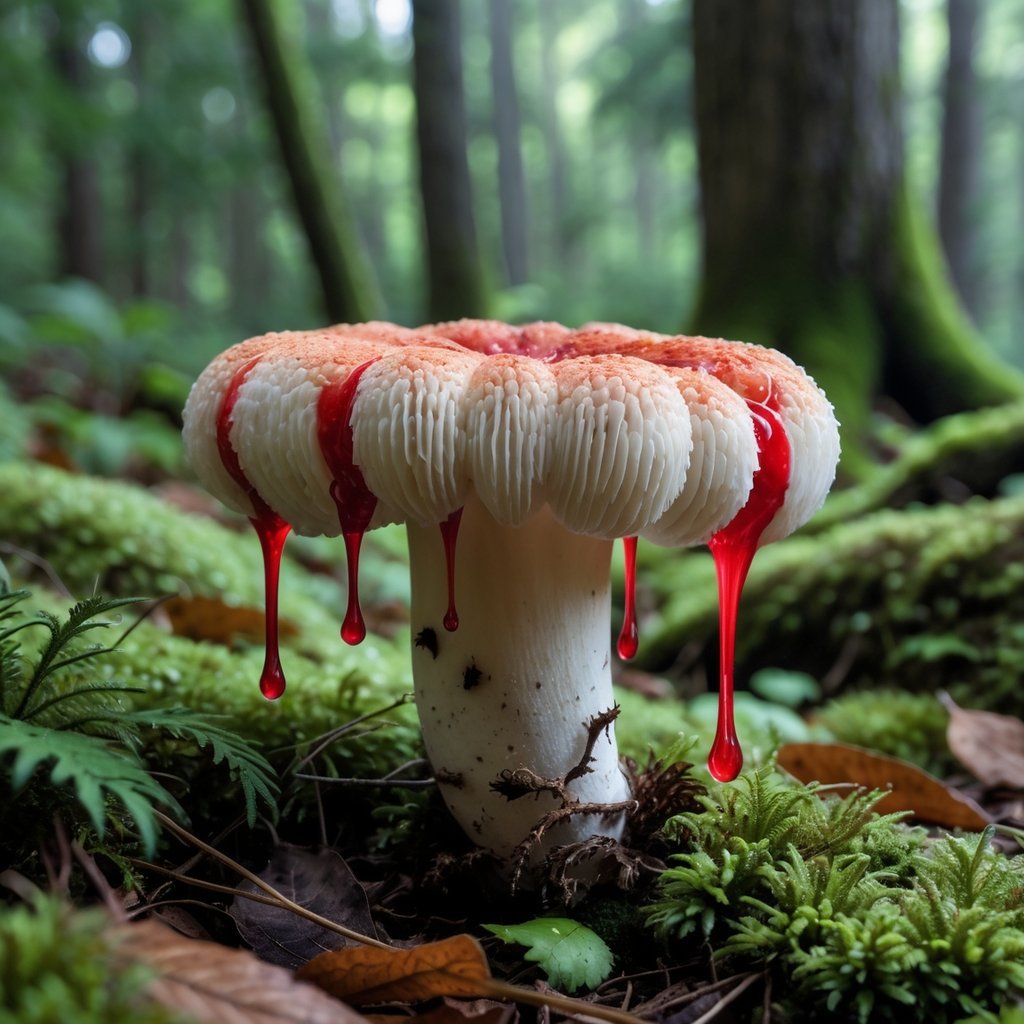
If you ever stumble across the bleeding tooth fungus, you might just do a double take. It really does look like it’s oozing bright red juice—kind of wild, honestly.
That strange liquid? It’s not blood, but a natural secretion called guttation.
This fungus grows a funnel-shaped cap, and you’ll spot tooth-like bits underneath. Those weird “teeth” actually release spores, letting the fungus spread out in the forest.
You’ll usually find it hanging out near tree roots in the woods. Don’t try to eat it, though—it’s not safe.
Still, it adds a seriously spooky vibe to the forest floor. Some folks even wonder if it might have some medical uses down the line.
Nature just loves to surprise us, doesn’t it?